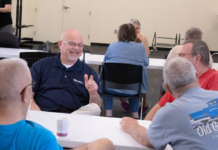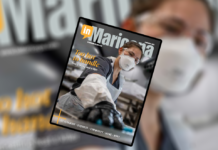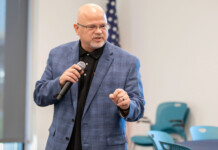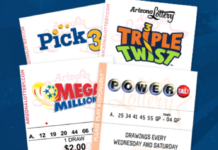
When it comes to getting our kids ready for school, we know the drill: running errands, food for lunches and, perhaps most importantly, homework and school supplies. As parents, we are accustomed to preparing our kids for the coming school year, yet rarely take time to get ourselves prepared for the possible challenges ahead.
Let’s start by assessing the realities of what it means to be a teen today. Arizona’s teens face pressure, as all teens do, but one of the scariest and most prevalent is prescription drug use. Intentional misuse of prescription medications is the biggest teen substance abuse challenge we face today. One out of four 12th graders has used a prescription painkiller WITHOUT a doctor’s prescription.
Many parents assume their children aren’t the ones using and abusing prescription medication, but the reality is that even if your kids aren’t yet using, the chances are great they will be offered these and other substances – sometimes together.
While parents are busy packing their kids’ backpacks, here are a few things to put in your own backpack as school year 2010 begins.
Here are the “Ten in 2010” items you should include in your parent ‘back to school backpack’:
1. The facts – Arm yourself with up-to-date information about substance abuse. A recent study found that teenage girls are more likely than teenage boys to perceive potential benefits from drug use and drinking, making teen girls more vulnerable to drug and alcohol abuse. Use the facts to begin a dialogue with your teen – boy or girl – about the dangers of substance abuse.
2. Cell phone – Use your phone to get in touch with your teens. Learn to communicate as they do, through texting. Create a secret phrase or code your teen can use if they need to call you for help to get out of a situation, but don’t want to say anything in the presence of friends.
3. Phone numbers – Along with your phone, make a list of important phone numbers – your teen’s friends and their parents, as well as coaches, school nurses, mentors, etc. Create a network of responsible adults.
4. Watch or clock – To remind you to spend at least 15 minutes a day talking or spending time with your teen, and also to set curfews.
5. Plastic bag/cat litter – Prescription drugs are the number one threat our teens face today. Get rid of the old medications in your home that you don’t need any more. In order to correctly dispose of prescription drugs, the pills must be smashed and mixed in with some undesirable trash like coffee grinds or kitty litter. Do not flush the drugs down the toilet – it contaminates the water source!
6. Food – Eating meals together can provide an opportunity to stay connected and talk with your teens about important topics, or just about the day’s events.
7. Pillow – A reminder for parents that once kids become teenagers, large-scale sleepovers are no longer appropriate. A group will get into trouble much easier than one or two teens together.
8. Partnership literature – This will help you keep your kids safe, or help you determine whether or not your teen is using.
9. Something fun – Let’s not forget that spending time with your children and teens should be fun. Go to a movie, play a board game, go for a walk – spending time with your teens will help strengthen your bond. Your children will respect you as a parent and role model, but they will appreciate and cherish your friendship as well.
10. Patience – Remember, while our teens may look grown up and act grown up, their brains haven’t yet caught up. Brains aren’t fully mature until about age 24. There is some fascinating science on the teen brain and substance abuse that can help you understand this time in a teen’s life.
A bonus item for your backpack is the Partnership web address, www.PartnerUpAz.org.
It has a wide variety of other valuable information to help parents when it comes to drug use. On the website parents will find the tools they need to better prepare themselves for a conversation with their child about drugs.
Kim Obert is an original 3Moms volunteer with the Arizona Affiliate. 3Moms consists of everyday mothers whose lives and families have been impacted by their children’s drug use. Obert has two children. Her son died from an accidental overdose of prescription pain medication and alcohol. She recently began work with the Arizona Affiliate to honor her son’s legacy and help continue the Partnership’s message of prevention in Arizona.
Submitted photo









![City gave new manager big low-interest home loan City Manager Ben Bitter speaks during a Chamber of Commerce event at Global Water Resources on April 11, 2024. Bitter discussed the current state of economic development in Maricopa, as well as hinting at lowering property tax rates again. [Monica D. Spencer]](https://www.inmaricopa.com/wp-content/uploads/2024/04/spencer-041124-ben-bitter-chamber-property-taxes-web-218x150.jpg)





